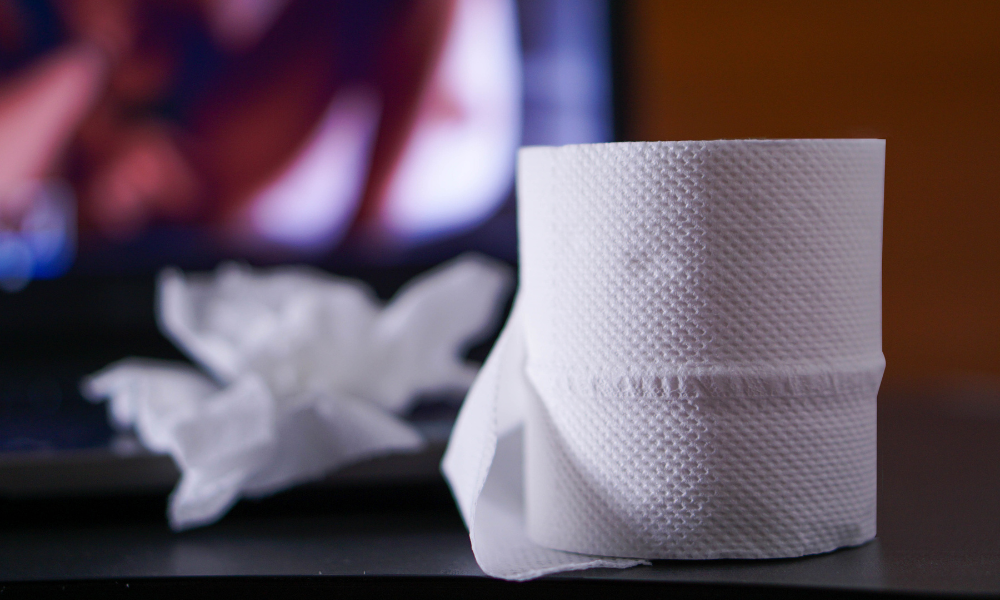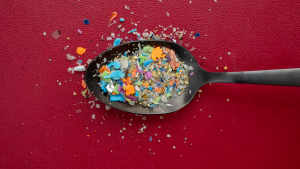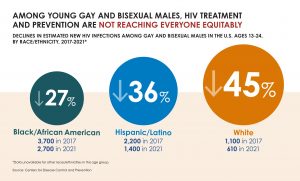
Should we be recommending STI testing for all sexually active heterosexual men?
Widespread screening for STIs in heterosexual men is deemed “not cost effective.” Should we reconsider?

A new paper, published in the Proceedings of the Royal Society B, suggests that there are biological and evolutionary reasons that we masturbate and looks to our ape ancestors for evidence. Evolutionary biologist Matilda Brindle and her colleagues at the University of London, reviewed decades of literature on animal masturbation and surveyed others who research this behavior to determine why primates would do something that seems evolutionarily foolish or at least unnecessary.
There is evidence starting around 40 million years ago that the ancestors of all monkeys and apes did indeed masturbate and Brindle had two theories about why early apes would “waste” their genetic material instead of saving it for partners who could carry on their blood lines? Both theories were ultimately supported by the research.
The first theory is that male monkeys masturbate to keep the plumbing working so that they’d be ready if/when they had to compete for the attention of a female. This theory is supported by the fact that masturbation was more common in species in which females mate with multiple males. In contrast, the art of masturbation was sometimes lost in species with monogamous partners. Exactly why they adopted this strategy is still unclear, but the researchers suggest it might have been a way to get rid of “stale sperm.”
Brindle’s other theory had to do with STIs. She hypothesized that primates might use masturbation as a way to clear germs from their reproductive tracts after sex. This was also supported by research because primates in areas or species with higher prevalence of pathogens were more likely to masturbate than those facing lower prevalence. She also noted that masturbation was observed more in large apes who weren’t able to reach their penises with their mouths for cleaning.
This is all really interesting, but there’s also the simple explanation that masturbation feels good for men and, apparently, monkeys.
Not surprisingly, the researchers found very little evidence that would allow them to draw conclusions about female monkeys masturbating. This may say more about man as the observer, however, than it does of the apes themselves. As Brindle pointed out, the research world has long seen women—human or not—as “the passive recipients of men’s sexual behavior.” On a purely practical level, humans are usually observing primate behavior from a far and it can be easier to see/identify male masturbation for what it is.
Brindle believes the stigma of studying masturbation is slowly lifting and that we will have more data on other species, and hopefully on some females, very soon.

Widespread screening for STIs in heterosexual men is deemed “not cost effective.” Should we reconsider?

Nongonococcal urethritis—or NGU—is an infection of the urethra caused by germs other than gonorrhea. The most common cause is chlamydia.

A new study found that testicles of human men contained tiny little shards of plastics, adding to concerns about the impact of our environment on reproduction.

We know that one important way to raise awareness about HPV-related cancer in men is by sharing stories of those who have experienced it. Here we share stories from three men on their experiences with HPV-related cancer.

The FDA just approved a new erectile dysfunction treatment that can be sold over the counter. This gel goes directly on the penis, works in just 10 minutes, and has few side effects. Some experts, however, aren’t convinced it works all that well.

While CDC reported a decline in overall new HIV infections, disparities in HIV prevention and treatment remain.
ASHA believes that all people have the right to the information and services that will help them to have optimum sexual health. We envision a time when stigma is no longer associated with sexual health and our nation is united in its belief that sexuality is a normal, healthy, and positive aspect of human life.
ABOUT
GET INVOLVED
ASHA WEBSITES
GET HELP
© 2025 American Sexual Health Association